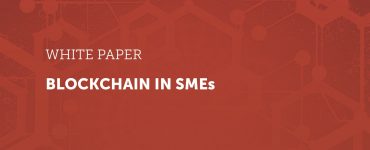Blockchain technology will, in 2018, gain entry into everyday business through a multitude of applications. Technical platforms based on blockchain will in particular support business applications and intermediary wants to create trust and process transactions. “New platforms are solving current problems in the areas of performance and scalability. So they will be able to take on more and more tasks in day-to-day business,” according to Prof. Dr. Wolfgang Prinz, Vice Chair of the Fraunhofer Institute for Applied Information Technology FIT in Sankt Augustin.
This will bring benefits, for example, to the rapid development of the Internet of Things (IoT). Administration of the exponentially growing amounts of data in the areas of smart home, smart city and industrial IoT is posing enormous challenges for companies and public institutions. “With the help of blockchain technology, these data can be efficiently and securely administered and used as important raw materials of our digital world,” says Stephan Zimprich, Leader of the Competence Group Blockchain at eco – Association of the Internet Industry
New applications thanks to leaner validation possibilities
This development will be fostered by new platforms which depend on validation possibilities that are less energy and cost intensive than the Proof of Work process, which is used for the crypto currency Bitcoin, for example. New consensus algorithms confirm transactions much faster and more energy efficiently, and are, at the same time, difficult to manipulate. Platforms like IOTA or Hyperledger Fabric thus, without a central instance, ensure the necessary level of trust in the network.
Above all companies are driving the technological developments, in order to profit from blockchain technology as rapidly as possible, according to Prinz: “While 2017 was the year of the blockchain Proof of Concept, which demonstrated in principle the feasibility of blockchain projects, in 2018 we will experience a growing number of blockchain applications in operational business applications.”
Private and public blockchains complement each other
Private blockchains, in particular, with a limited network of selected users, will be operated by companies in 2018. “The large public blockchains like Bitcoin and Ethereum will frequently serve as a support for these private blockchains to safeguard their own integrity. This means that both approaches will exist in future, both in parallel and interwoven,” says Prinz.
Application and function specific blockchain infrastructures
Alongside Ethereum, which many experts consider to be Blockchain 2.0, Hyperledger Fabric has also already achieved the breakthrough: Both platforms offer the basis for many Proofs of Concept. The integrated concept of smart contract in Etereum helps, for example, in the automation of simple processes in the blockchain. The platform thus creates the foundation for Distributed Apps (Dapps), or in other words, applications distributed in the network.
Further information on the work of the Competence Group Blockchain at the eco Association can be found at web.eco.de/themen/blockchain/.
Next Event: On Tuesday, 12 December 2017, the City of Cologne, the German medienakademie, the InsurLab Germany, the German ICT & Media Institute and eco – Association of the Internet Industry, invite you to the Blockchain PreMasters 2017 in the Alte Pfandhaus in Cologne.




